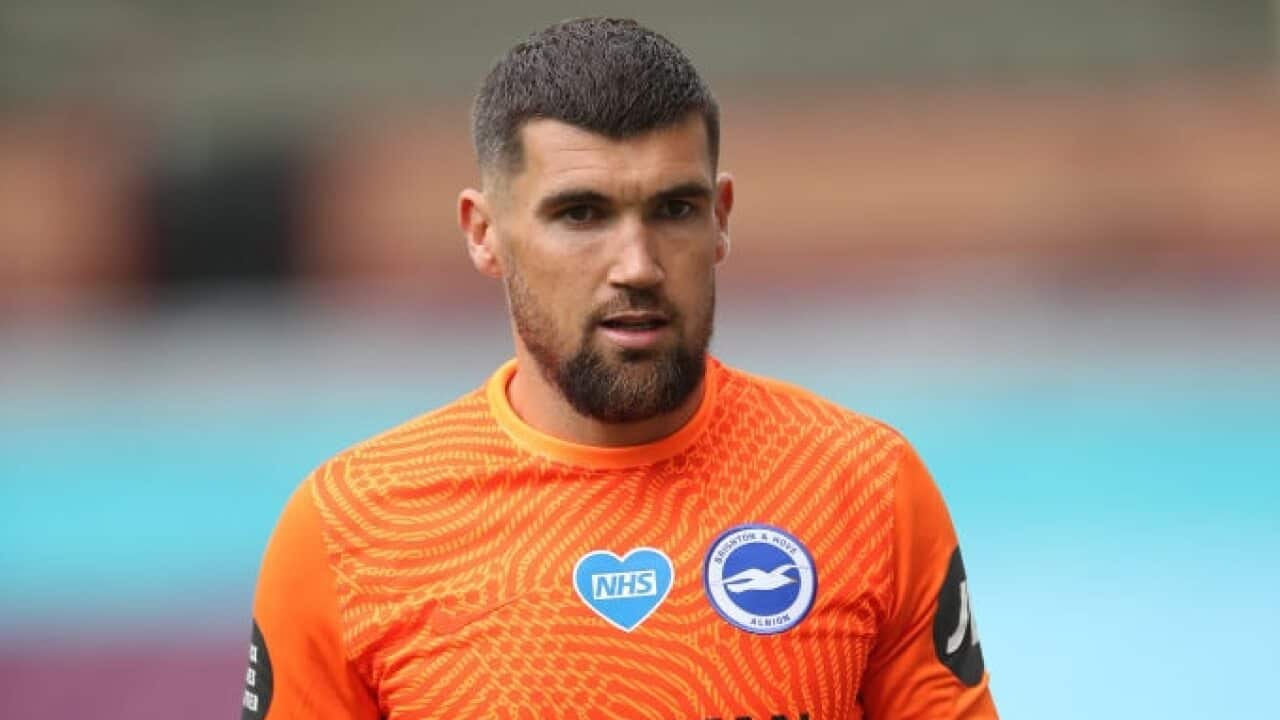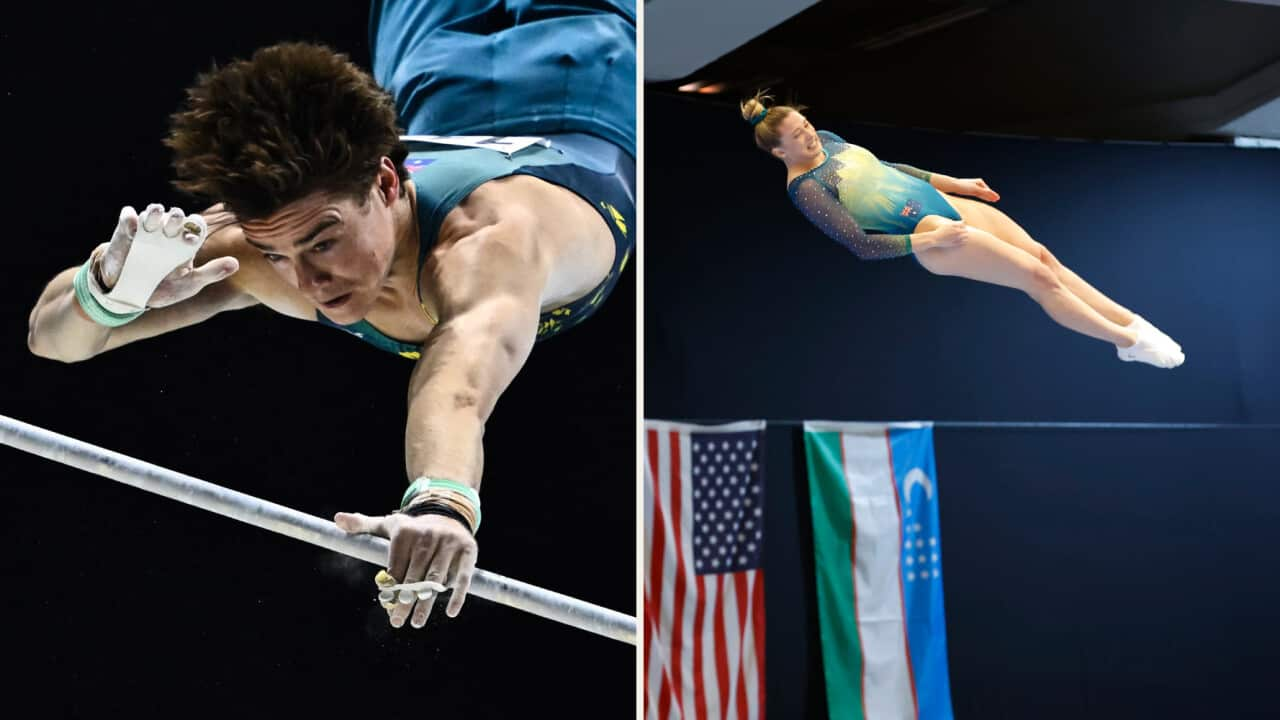Some of Australia’s best and brightest footballers have starred for English and Scottish clubs over the past few decades, such as Mark Viduka, Tim Cahill, Harry Kewell, Mark Schwarzer, Mark Bosnich, Brett Emerton, Lucas Neill, Mile Jedinak, Craig Moore, Tony Popovic, Craig Johnston, Stan Lazaridis, Scott McDonald and Aaron Mooy.
Currently, there are more than 50 male Australian players across different clubs in the UK, including Socceroos like Mat Ryan at Brighton and Hove Albion, and Massimo Luongo at Sheffield Wednesday.
But that could drastically change in the near future under the new restrictions created by the UK leaving the European Union (EU).
Previously, players with EU passports, such as Luongo and Mooy, found it easy to live and work in the UK.
But now, those individuals will be treated in the same way as players from the rest of the world, making work permits much harder to gain for Australians.
The low ranking of the A-League, classified as a band six competition, compared with the top leagues in Europe, will also play a factor.
Under the rules, Mooy would have been unlikely to get a work permit to join Manchester City from Melbourne City in 2016, nor Tom Rogic with Celtic from the Central Coast Mariners in 2013.
“In effect it all comes down to a point-based system, so the players are immediately judged on what league they are coming from, how many minutes they have played, and how has that done in recent results,” James Hardy, who works for London-based AVID Sports and Entertainment, told The World Game.
“It will be very difficult - in fact, impossible - for players playing in Australia to move directly to the UK, no matter how good they are. They just won’t get the number of points needed to qualify.
“However on the flipside, if an Australian is playing in Europe, regardless if he holds an EU passport or not, which previously was the problem for some Australians, it will be easier and they will have the same chance as everyone else.”
The impact of Brexit could see more Australian players head to leagues in Belgium, Holland, Denmark, Croatia, Germany and Portugal instead of trying to secure contracts in England and Scotland.
“It’s certainly going to be a lot more difficult for Australian players, especially those coming from Australia,” Chris Gantonas, founder of Melbourne-based Calibre Management, admitted.
“If we’re realistic the likelihood of Australian national team players, and that’s A level national team players, playing in the A-League is obviously not high as it is. Then those players going to England and Scotland and playing in the top tiers - the chances aren’t high.
“So the likelihood of Australians generally going to the UK without a UK passport is going to be even harder than it is now. I don’t know how many players we’ve seen go to the UK, even with a UK passport, and playing regularly in a first-team environment.
“So for those boys without a passport it’s going to be even more difficult. It’s probably more about the specific player and what the right journey is for them.
“We’ll need to build concrete networks with leagues that are more realistically suited to Australian footballers and provide them with an opportunity to develop.”
Australian players that already hold a British passport, like Ryan, Jackson Irvine and Ryan Williams, would not be affected under the changes.
But in the future only regular Socceroos, unless they have UK citizenship, will find it easy to secure a place in British football.
“Previously being an Australian player with an EU passport was enough to get you a trial or signed in the UK,” agent Al Jarjami said.
“Now with the points system, the players from Australia with EU passports will have to be some of Australia’s best to warrant the points their visa classification uses. In the past, [British] clubs would take a gamble or risk to see if the players had potential.
“But now these players are up against players from the prestigious youth clubs from France, Holland, Portugal and Spain.
"Put it this way, if you were a club, would you look at a player from Marseille U-21 or the Central Coast Mariners' NYL side?
“However, it does make it easier for Australian players with British heritage, as they won’t use up the same amount of points and clubs will be more likely to give them a go, to save on points.”
While the rule changes may prove to be a nightmare for male Australian players and coaches, the picture is more positive for female Australians.
Currently 10 Aussies are plying their trade in the English Women’s Super League, like Matildas stars Sam Kerr and Caitlin Foord.
Boris Ivanov, principal of Melbourne-based TF14, believes Australian men will be more impacted than women due to the relative strengths and rankings of the A-League and W-League.
“Effectively, for non-national team male players, the UK will no longer be an option – it wasn’t for many previously either, only those with EU passports had access – unless they hold a British passport or can access a heritage visa,” Ivanov said.
“For non-national team women it will be harder but still possible due to the strength of the W-League and the points you attract in playing in that competition.
“Younger players will also no longer be able to sign before the age of 18.
"Many younger Australian players with EU passports were previously able to sign at UK academies aged 16, now it’s going to be harder as they’ll have to be better to be picked up at 18 rather than 16, as the club will have less time to work with them.”










